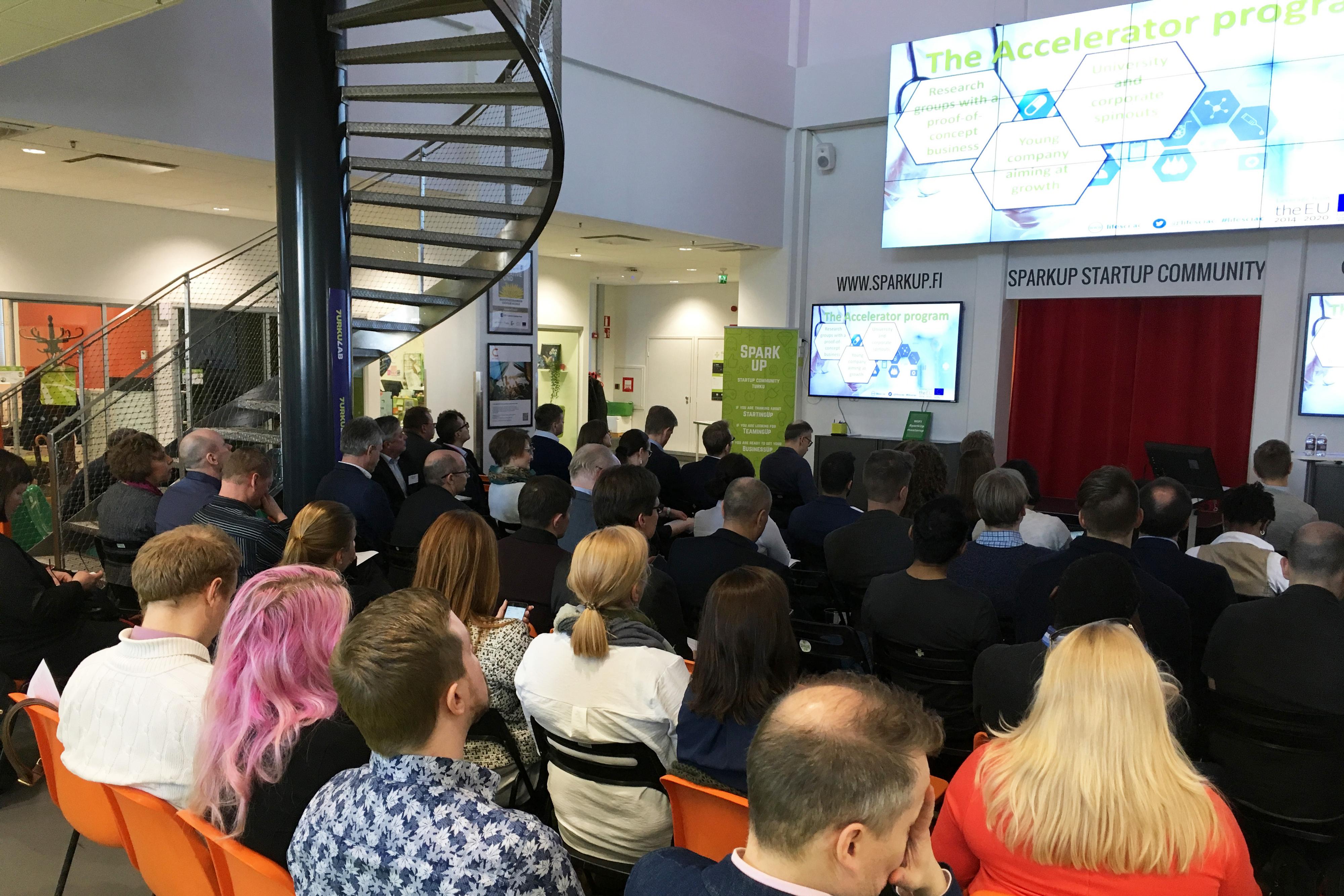- The first Life Science Accelerator programme in Finland produced excellent results
- Over a period of two years, nine new companies were founded and the participating companies gathered over 4 million euros of financing
- Started with ERDF funding, the programme is ending but will continue in autumn 2019 with an improved concept and under the new name ProHEALTH ACCELERATOR
The Life Science Accelerator programme for research groups and start-up companies focusing on drug development, diagnostics and related service concepts is ending this spring. Started in Turku Science Park Ltd in late 2016 with project funding from the European Regional Development Fund, the programme served a total of 29 research groups and start-ups in four phases during its two years of operation. The goal was to help the teams to reach a new level on the commercialisation path under growth coaches and mentors.
“Around 70% of the more than 50 teams that applied for the programme were research projects. Interest emerged also internationally, as were received applications from outside Finland despite the domestic targeting. Of the 29 qualified teams, three quarters managed to advance their internationalisation, acquire financing or find industrial partners”, says Senior Advisor Hanna Halme from Turku Science Park Ltd.
Success is also signified by the new companies founded and the funding gathered by them.
“A total of nine new companies were founded by the teams in the programme. All companies that participated in the programme or were set up during it gathered over 4 million euros of financing for their operations.”
High rate of commitment important
The one-year accelerator programme offered six-month structured coaching followed by an extension period with tailored content. Each team had a dedicated growth coach named from among Turku Science Park Ltd’s experts throughout the programme as well as top mentors selected from the broad co-operation network.
Director of Services for Start-up Companies in Turku Science Park Tom Palenius sees obvious reasons for the good results and positive feedback of the programme.
“The systematic and clear structure of the programme, the generally high rate of commitment of the teams, and the entrepreneurial approach were important factors for the success of the activities. Long distances presented additional challenges in some cases, as it is a nation-wide service with participating teams from all of Finland’s important Life Science clusters. That’s why part of the workshops included in the programme were arranged outside Turku”, Mr Palenius says.
ProHEALTH ACCELERATOR continues the service
According to him there is a clear need for such a publicly funded accelerator programme. Turku Science Park Ltd has decided to continue the operations also after the project funding comes to an end.

“The service continuing under the name ProHEALTH ACCELERATOR will focus on sparring business and company projects that have advanced a little further. The target group comprises of promising business ideas within the Professional Healthcare segment. Like before, consumer products in the health care and well-being sectors will be excluded from the programme. Another new thing is the continuous operating model based on an annual cycle to which companies can be accepted at different times after passing the evaluation of their business idea based on the Lean Canvas thinking. The new model will create great opportunities for closer nation-wide co-operation for enhancing the flow of ideas and local supporting of the teams”, Mr Palenius says about the future of the programme.
The regional project partners of the accelerator programme initiated with ERDF funding were Turku University of Applied Sciences, University of Turku, Åbo Akademi University, Turku University Hospital, and the Hospital District of Southwest Finland. In addition to running the accelerator programme, the funding was used to map out the equipment and know-how serving the life science companies (drugdevelopment.fi) and build the Corporate Corner co-operation network that brings together e.g. academic and industrial researchers.
Further information at Turku Science Park Ltd: Tom Palenius and Hanna Halme.

